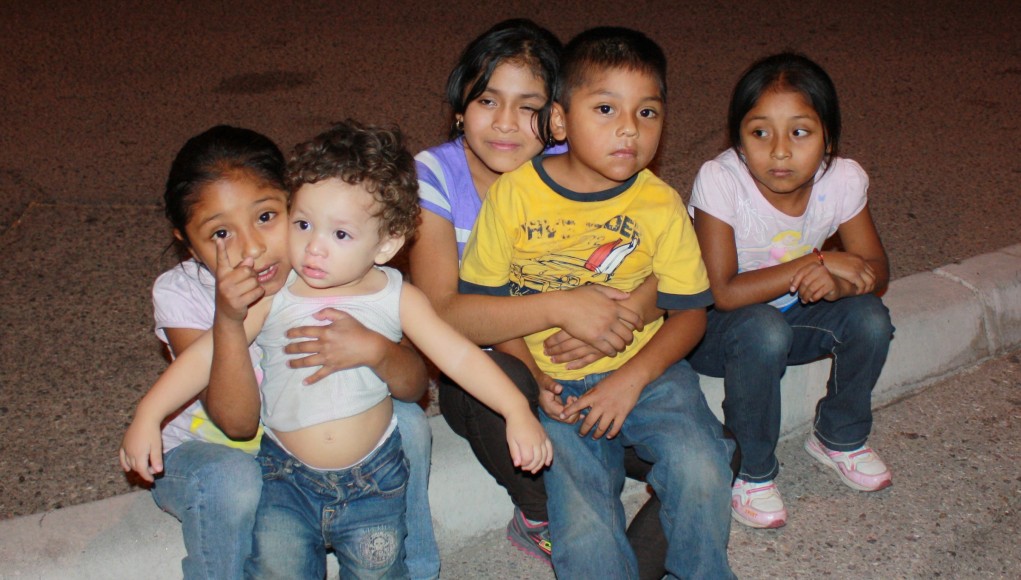For the estimated 11 million undocumented immigrants living in the United States, the national debate of immigration reform will decide their futures. The main question that still lingers in this conversation is: Will they be allowed to stay, work, and become citizens?
Those affected by immigration reform will not only be the immigrants themselves.
Those who will be affected are the children that live with an undocumented parent(s). And that is a lot of children: An estimated 4.5 million children who are U.S.-born citizens by birth live in a household with at least one undocumented parent.
Immigrants come to the United States to have a better life for their children. Trying to live and work and parent without being noticed can be horrendously terrifying. The immigrant parents are not the only ones affected; their U.S.-born citizen children face the most day-to-day anxiety.
Knowing this has led to unimaginable household turmoil. Fearful that their parents may be arrested and deported at any time, it’s a constant state of disturbance for children. Studies have shown that the threat of deportation causes severe stress and anxiety among children with undocumented parents or siblings. Detainment and deportation of parents ultimately leads to other various factors that include, but are not limited to, poverty, diminished health care and food access, mental health and behavioral problems, and limited educational opportunity.
This does not even take into account the trauma that children experience as witness to a parent’s detainment. Research conducted provides further evidence that a continued policy of detention and deportation has led to health expenses that extend beyond tangible needs, but rather emotional cost. Without a valid U.S. citizenship, undocumented parents are far less likely to take their children in for a regular health check-up, let alone an emergency.
With the fear of being deported, oftentimes many immigrants use another person’s identity to work in labor factories. Known as “Chicano Papers,” invalid documentation allows immigrants the little room of leverage to work in a factory and to oftentimes be abused by their employer. These factories range from packaging to food factories that will most likely not provide dental care, eye care, or health insurance. Other reasons may also include that they do not want it deducted from their paycheck or the fear that their boss may discover their true identity, and the citizenship in the United States.
Research conducted in 2012, predicted that detention and deportation will cause hundreds of thousands of families to experience hardships. It is now 2015, and the detention and deportation level has consistently been increasing. The alarming fact is that this still affects children the most. An estimated 43,000 U.S.-born children will experience a severe decline in their mental health status. This will occur due to the absence of a primary earner — an undocumented parent — that is no longer present. Over 100,000 U.S.-born children will demonstrate signs of anxiety and withdrawal after witnessing or knowing of a parent’s arrest. This will also lead to problems in education that will cause children to finish fewer years of school and focus less on their general studies.
It’s heartbreaking to witness the unbelievable effort an undocumented immigrant goes through to support themselves, and especially their children. It’s even more heartbreaking to see that no solutions are being made that would keep families together. Families are being torn apart, and the topic of immigration reform is still on the table. The United States needs a plan that is progressive, cost-efficient, and effective.
Discussing these issues with the immigrant community is vital. Most immigrants do not have reasons to return back to their homeland or are fearful of the violence that still occurs. We must take into account the reality that immigrants keep the United States progressing and that their service is necessary for our continued economic growth.
The children of undocumented parents are the most affected and in many times devastated. Financial instability is the most immediate impact of a detention or deportation. What image are we portraying as a country if we do not value family unity?
For millions of hard-working immigrants and their children, the American Dream will continue to be a nightmare until America finally decides to tackle immigration reform.










